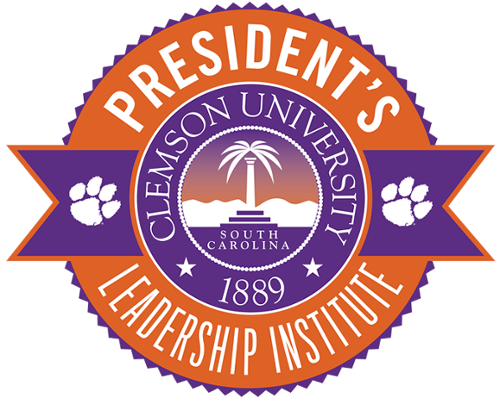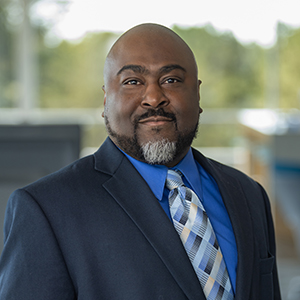President’s Leadership Institute
What is the President’s Leadership Institute?
The President’s Leadership Institute is a nine-month leadership development program designed to support and develop professional and personal leadership within a diverse and inclusive community of faculty and staff at Clemson University. The institute enables participants to build individual effectiveness, understand the power of critical thinking and communication, learn directly from President Jim Clements and embrace their own ability to lead within the Clemson community. Each cohort consists of 25 faculty and staff nominated by University leadership.
The President’s Leadership Institute is an exciting opportunity for emerging, high-potential, and high-performing members of the faculty and staff of Clemson University.
Goals of the President's Leadership Institute
- Enable personal and professional growth for every participant.
- Ensure high levels of familiarity and interaction among faculty and staff from all areas of the University.
- Offer opportunities for dialogue and discussion on topics important to the state of our University and its environment and constituents.
- Provide an in-depth, clearer understanding of the internal structure and unique characteristics of our University landscape.
- Create dialogue and discussion on topics important to the state of our University and its constituents.
- Explore issues and opportunities facing higher education in general and those specific to Clemson, such as our mission, strategies, priorities, governance, stakeholders and internal/external relations.
- Broaden perspectives of Clemson's impact at a state, regional, national, and international level.
- Ensure strong University leadership for the future.
- Improve the University's overall performance.
Time Commitment
The program runs from August through May of a given academic year. Each program includes:
- Seven class days
- An overnight trip to Columbia and Charleston
- A graduation ceremony
- Variety of site visits outside of the main campus
Nominations
Annual nominations for the cohort will be solicited in April.
“The President Leadership Institute is a one-of-a-kind program. A program led by two great successful, visionary leaders. It has really made me think differently about myself and helped me to create a vision for my life.”
Rodney JonesProgram ManagerClemson University Center for Workforce Development


